MiTAC Intel Denali Pass High-End Liquid Cooled 2U 4-Node Overview
The front of the 2U 4-node Denali Pass server is more unique than many realize. Here, the latch and bar feature to retain and service all nodes is one of the best designs we have seen. The other notable feature is that these are full half-width nodes. Many other vendors will put power supplies alongside nodes, which narrows the width of the compute nodes.
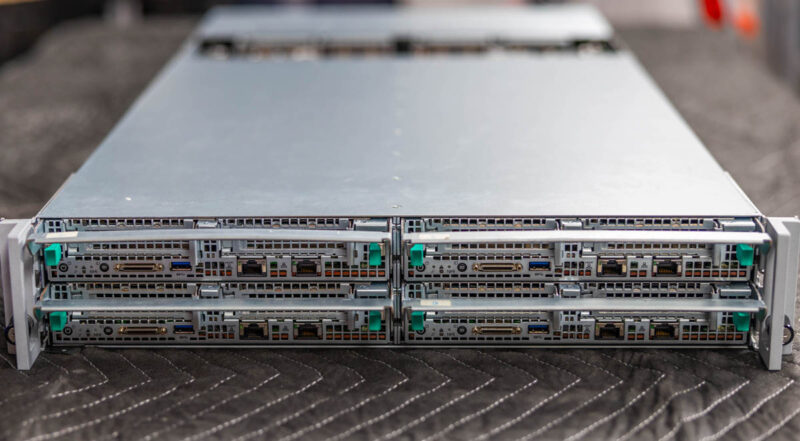
Both the air-cooled and liquid-cooled versions are the same, although the air-cooled one has stickers applied. This is a small point, but many liquid-cooled 2U 4-node systems use a PCIe riser expansion slot for liquid cooling nozzles and/ or tubes. Here, the I/O expansion is the same.
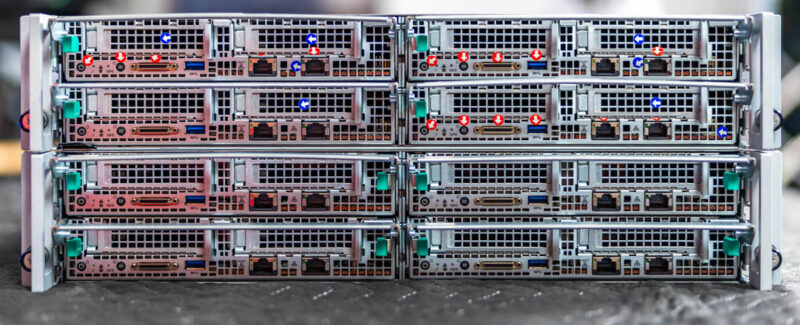
Looking inside the chassis, we can see the air-cooled version has a mid-plane frame and power delivery before the fan modules.
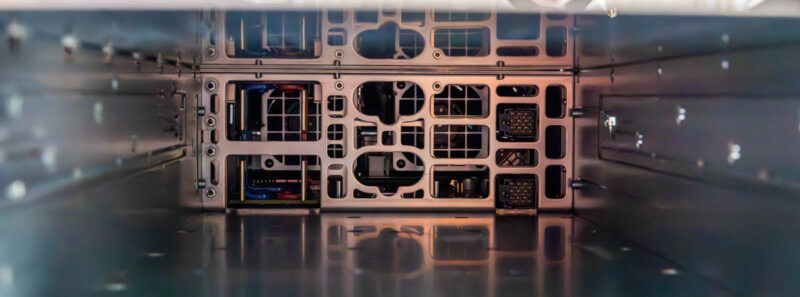
Here is that same view on the liquid-cooled version. We can see the center nozzles for liquid.
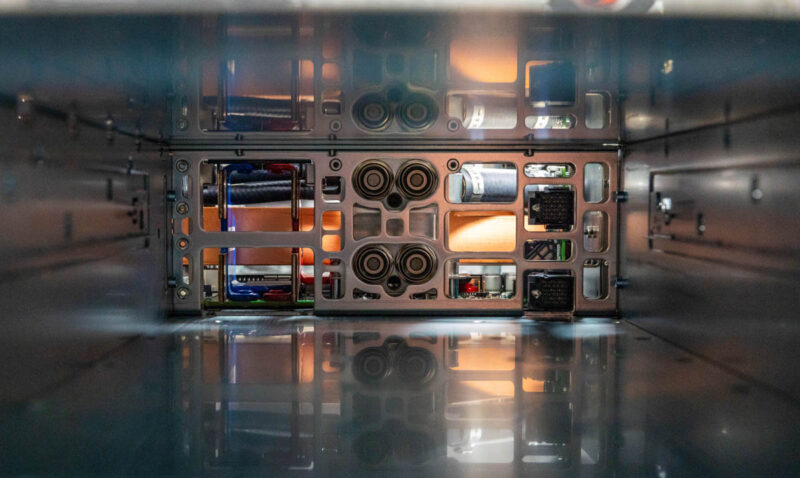
This picture is of the other side, albeit they look similar. One can see that liquid cooling makes up a huge part of this area.
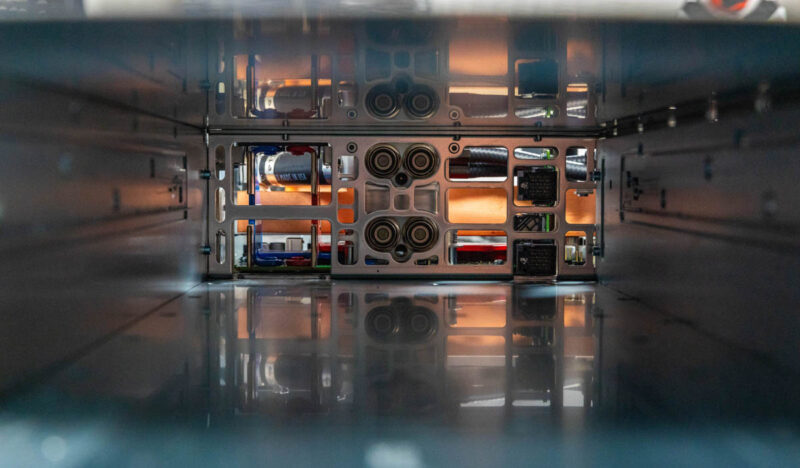
Here is why. The center area provides power to the nodes and liquid cooling plumbing.
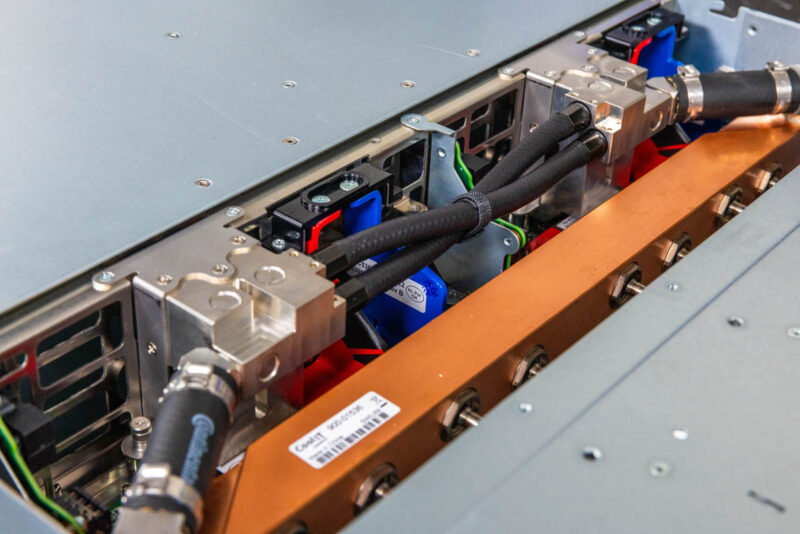
There are distribution blocks for the nodes and power supplies. Unlike some other servers, the nodes connect to power and liquid cooling through the rear instead of trying to pass PCIe lanes through these connectors.
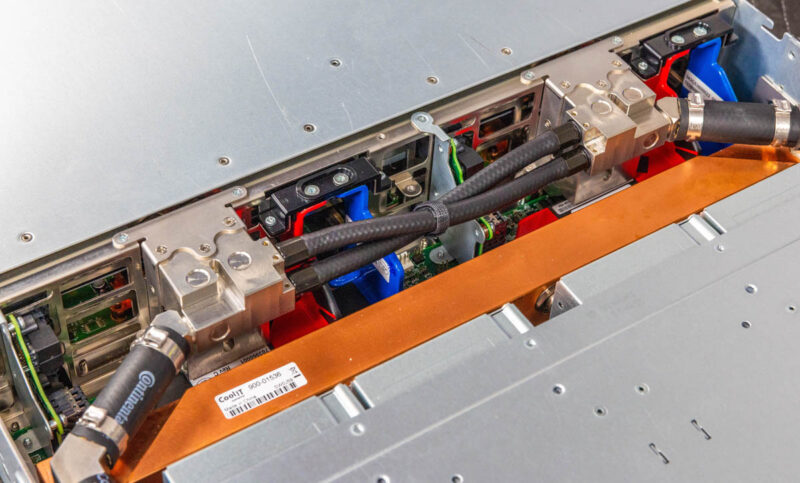
There is a large CoolIT distribution manifold within in the chassis for the power supplies.
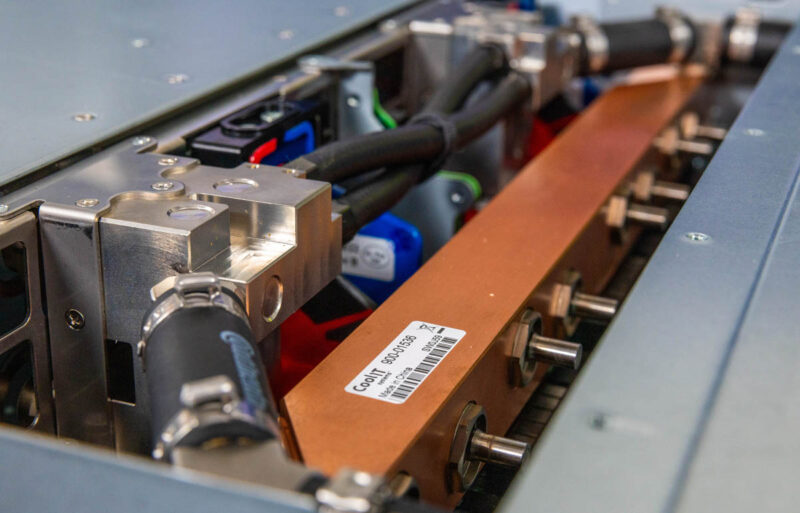
We also have distribution blocks for the nodes as well as the power distribution.
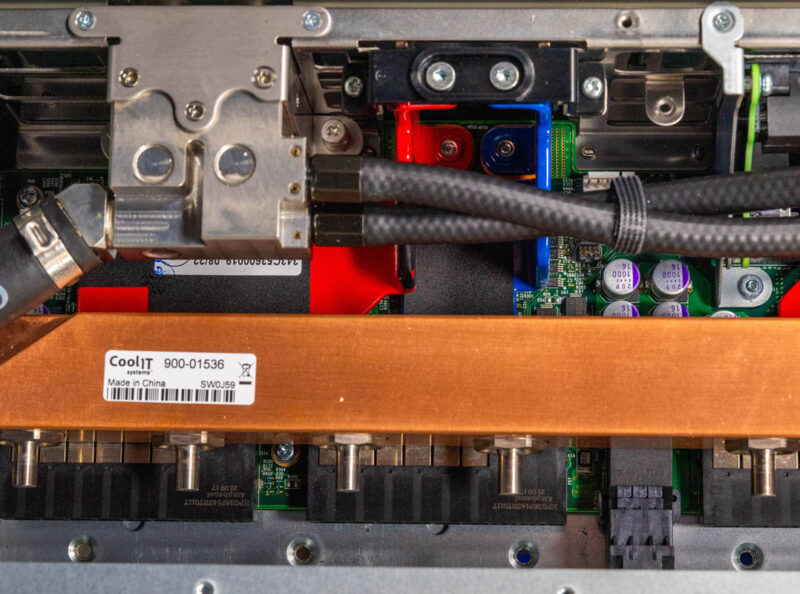
Here is a look at the power supply manifold from the rear of the chassis.
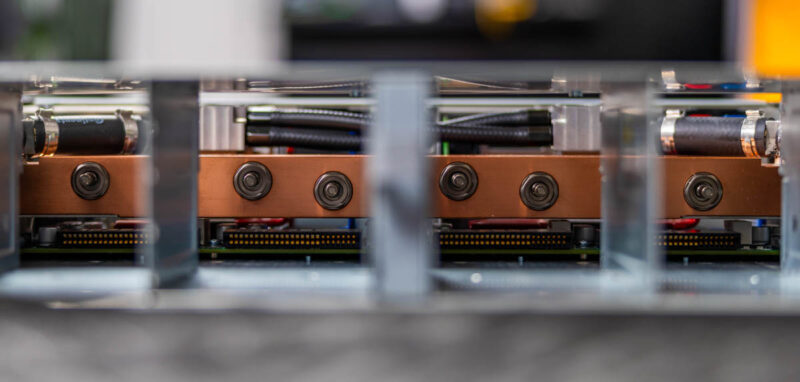
Here is that same view in the air-cooled version where you can see that the middle area is completely different and that there are no fans. We will show you why in a moment.
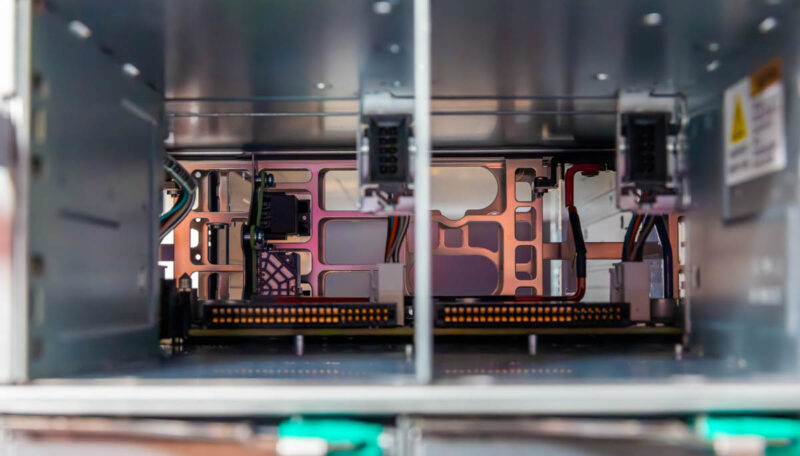
While the front was the same, the middle was completely different. Next, let us get to the rear of the systems to show you how a server that looks the same on one end can be completely different on the other.

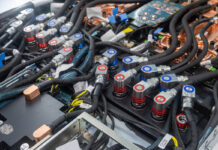

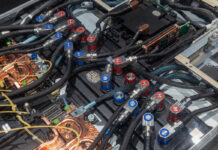
It’s a work of art by former Intel guys. Unfortunately, no successors